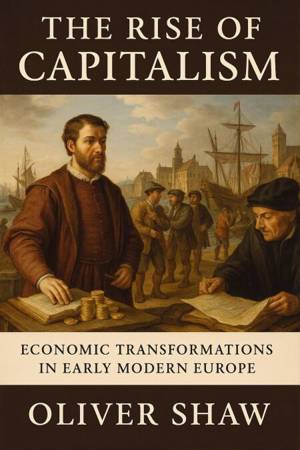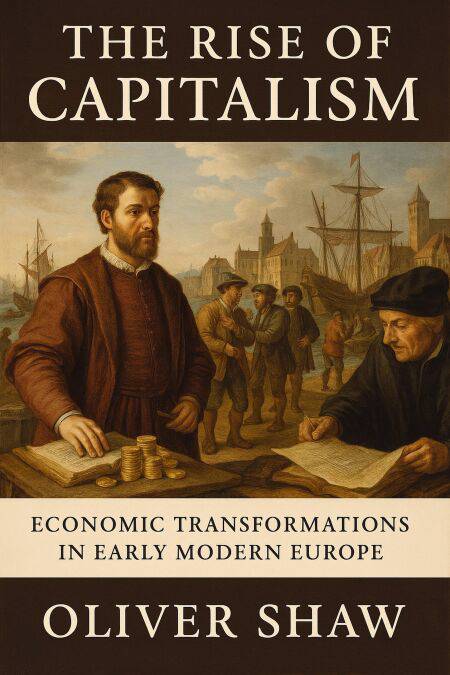
- Afhalen na 1 uur in een winkel met voorraad
- Gratis thuislevering in België vanaf € 30
- Ruim aanbod met 7 miljoen producten
- Afhalen na 1 uur in een winkel met voorraad
- Gratis thuislevering in België vanaf € 30
- Ruim aanbod met 7 miljoen producten
The Rise of Capitalism: Economic Transformations in Early Modern Europe E-BOOK
Oliver ShawOmschrijving
The Rise of Capitalism: Economic Transformations in Early Modern Europe by Oliver Shaw explores the profound economic shifts that took place in Europe from the late Middle Ages to the dawn of the Industrial Revolution. The book delves into the factors that fueled the rise of capitalism, examining the transformations in trade, agriculture, finance, and manufacturing that reshaped European societies.
Through a detailed analysis of key economic ideas, such as mercantilism and early capitalist thought, the book traces the role of institutions like the banking system, joint-stock companies, and colonial enterprises in laying the groundwork for modern capitalism. The development of global trade networks, the rise of the bourgeoisie, and the establishment of factory systems are explored alongside the social consequences of these changes, particularly the emergence of the working class and the exploitation of colonial labor.
Shaw also provides a critical examination of the economic theories and practices that underpinned this transformation, including the contributions of thinkers such as Adam Smith and Karl Marx, as well as the political and social upheavals that came with the rise of capitalist economies. The book offers a comprehensive narrative of how early modern Europe transitioned from feudal economies to capitalist systems, setting the stage for the global economic order that emerged in the 19th and 20th centuries.
Specificaties
Betrokkenen
- Auteur(s):
- Uitgeverij:
Inhoud
- Taal:
- Engels
Eigenschappen
- Productcode (EAN):
- 9798230921844
- Verschijningsdatum:
- 13/04/2025
- Uitvoering:
- E-book
- Formaat:
- ePub

Alleen bij Standaard Boekhandel
Beoordelingen
We publiceren alleen reviews die voldoen aan de voorwaarden voor reviews. Bekijk onze voorwaarden voor reviews.









